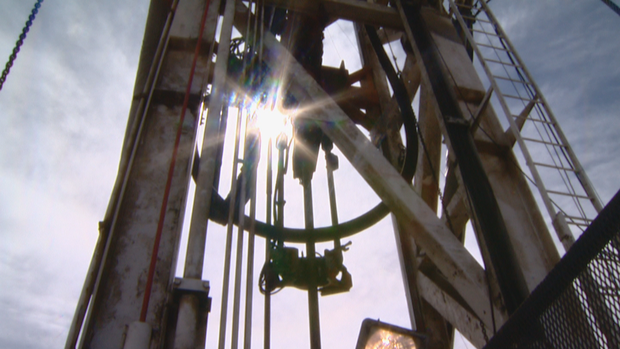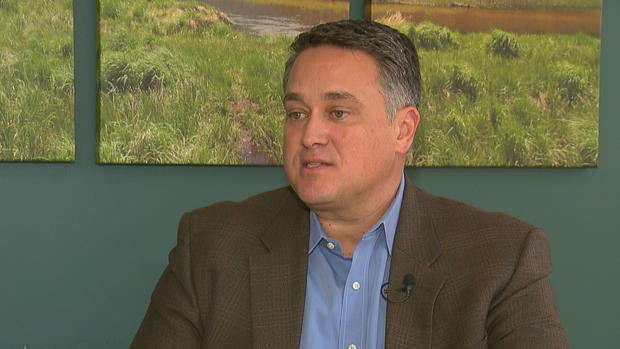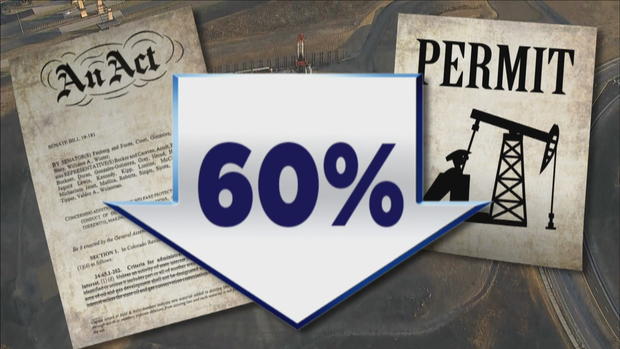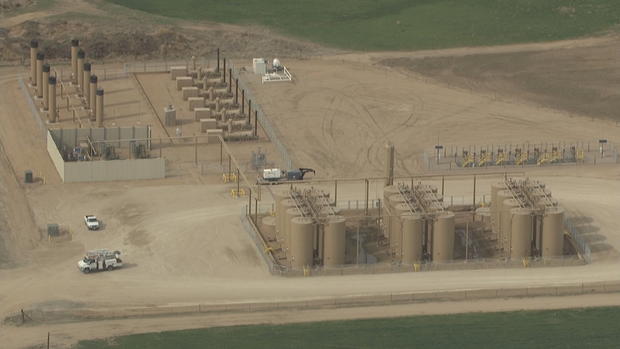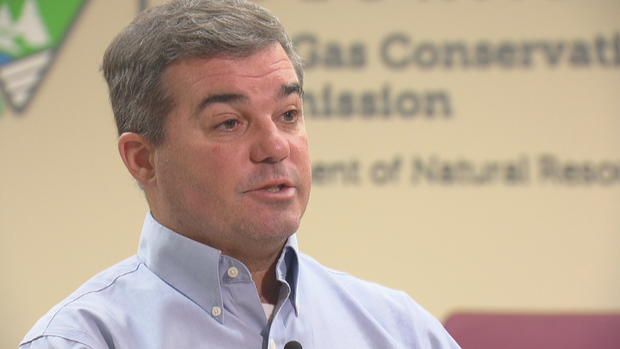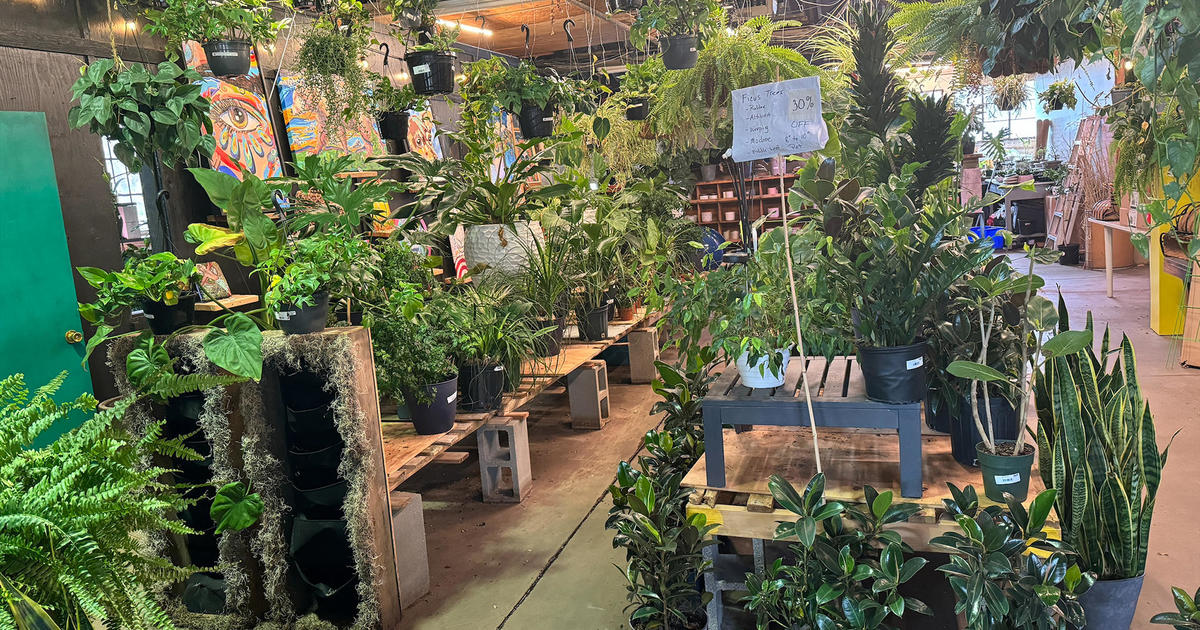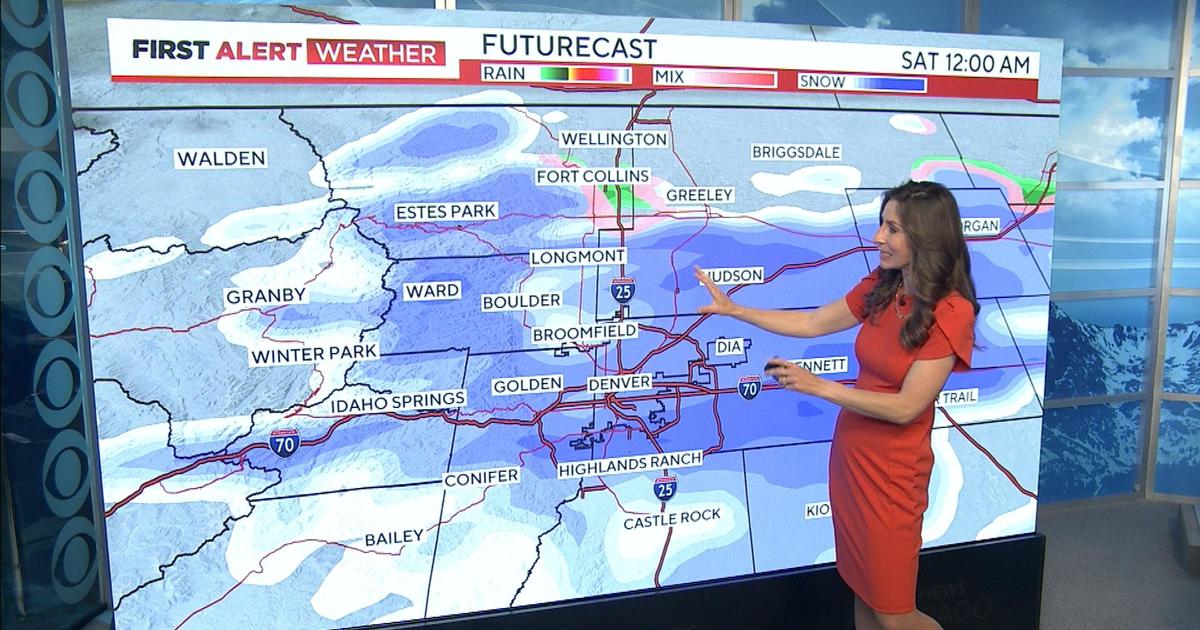New Colorado Oil & Gas Law Already Impacting Industry
DENVER (CBS4)- Climate activists demonstrated outside a hearing where the Colorado Oil and Gas Conservation Commission is implementing a new law that makes sweeping changes to how drilling is regulated. The industry is already feeling the impact of that law.
Five months after the law took effect, drilling permits are down 60% from what they've averaged over the last decade, one operator has declared bankruptcy, and 10 local communities have passed moratoriums on new drilling.
Dan Haley, head of the Colorado Oil and Gas Association, which represents nearly 300 operators, admits it's an unsettled landscape.
"There's uncertainty for financial markets and there's uncertainty for our operators as to what they can do as they wait for permits. Do they begin delaying construction schedules? And then I think there's also the cost that comes with added regulations and that's hard on small business," Haley.
One of those small businesses, Petroshare, declared bankruptcy this month.
Haley wouldn't comment on whether operators are in trouble saying only, "I think this is a pivotal time for our industry."
And maybe no individual has more influence over its future than Jeff Robbins - the new director of the COGCC. The new law upended permitting rules overnight.
"We had to create object criteria, we had to go through a public comment process, we had to then finalize the criteria, we had to create guidance documents for operators," said Robbins.
The result he says was a slowdown in permitting. It's slowly picking up, "I have informed companies that if they feel they have issues and that they need a certain location, I want to hear about it because I will make sure my permitting team works on those locations."
But under the new law, operators also need permits from local governments and they have vastly different approaches. Adams County has enacted regulations that block most permits while Weld County opened a department to expedite them.
Robbins, who is an attorney, represented Adams before his new post and explained why Weld County got a warning.
"There had been concerns that Weld County wanted their process to dictate over what we do at the state."
Robbins insists there was no double-standard, "I'm trying to treat all communities the same. I don't think I come in to the job with biases. I think I come in with a 20-plus year history of being involved in the oil and gas arena. I have relationships with all sides. I've worked with the environmental community. I've worked with homeowners and stakeholder groups on the Front Range and I've worked with operators and I think that experience is helpful to get this right."
But how the law gets applied is subjective. While it says new regulations must be "necessary and reasonable," Robbins and the COGCC get to define that.
"My mandate is to land this ship in the right spot so we're regulating in a way that's protective but also allows for oil and gas to continue to take place."
The ambiguity around the phrase "necessary and reasonable" is all but certain to lead to a lawsuit, but Haley remains optimistic about the industry's future in Colorado.
"I believe this is an industry of visionaries and doers and innovators and engineers who find their way around issues and problems through innovation and technology and I believe we will continue to produce this resource that we all use every day," said Haley.
